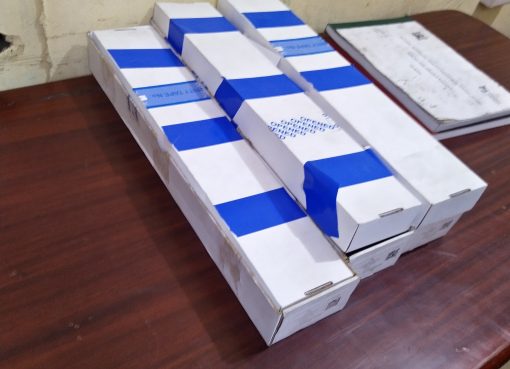Plans are underway to establish two more renal units in Nakuru County in a bid to provide dialysis services to more patients.
The two units, which will be established at the Molo and Subukia hospitals, are expected to complement the services being offered at the Nakuru Level Five and Naivasha Sub County hospitals.
County Director for Medical Services, Dr. Daniel Wainaina, said that Nakuru remains a pioneer in renal healthcare, being the first county facility to establish a functional renal unit after Kenyatta National Hospital.
“The County Referral Hospital currently operates two dialysis units with 12 and 8 machines, respectively,” Dr. Wainaina noted.
He made the remarks during activities to mark World Kidney Day at the Nakuru County Referral and Teaching Hospital-NCRTH.
Dr. Wainaina indicated that the county had advanced its renal replacement therapy in a bid to pave the way for kidney transplants in the future.
He noted that the county government had already acquired the services of relevant specialists, who include a vascular surgeon and a nephrologist, in preparation for advanced renal medical procedures in the near future.
As part of activities lined up to commemorate World Kidney Day, Nakuru County Referral and Training Hospital provided free testing and kidney screening as well as in all level four hospitals in the county.
Dr. Wainaina urged area residents to take advantage of free medical camps offered periodically in order to establish their health status.
He further urged residents to embrace healthy eating habits to avoid acquiring lifestyle diseases that will ultimately lower the quality of their lives.
The County Department of Health has recently adopted a more coordinated approach to tackling Non-Communicable Diseases (NCDs) through the NCDs Technical Working Group (TWG).
The Technical Working Group is expected to oversee interventions and strategic plans to enhance prevention, control, and management efforts.
The preventive efforts will specifically focus on diabetes and hypertension, which are two of the leading lifestyle diseases that take a toll on the kidneys.
Other contributing factors include heart disease, obesity, family history, and certain medications can also contribute.
High blood sugar levels from diabetes can damage the blood vessels and tiny filters in the kidneys, impairing their ability to function properly, while sustained high blood pressure can damage the blood vessels in the kidneys, leading to reduced blood flow and kidney damage.
Dr. Wainaina emphasised the need to domesticate the National Strategy for Prevention and Control of NCDs 2022 in a bid to ensure sustainable and effective healthcare solutions for Nakuru residents.
By Jane Ngugi





